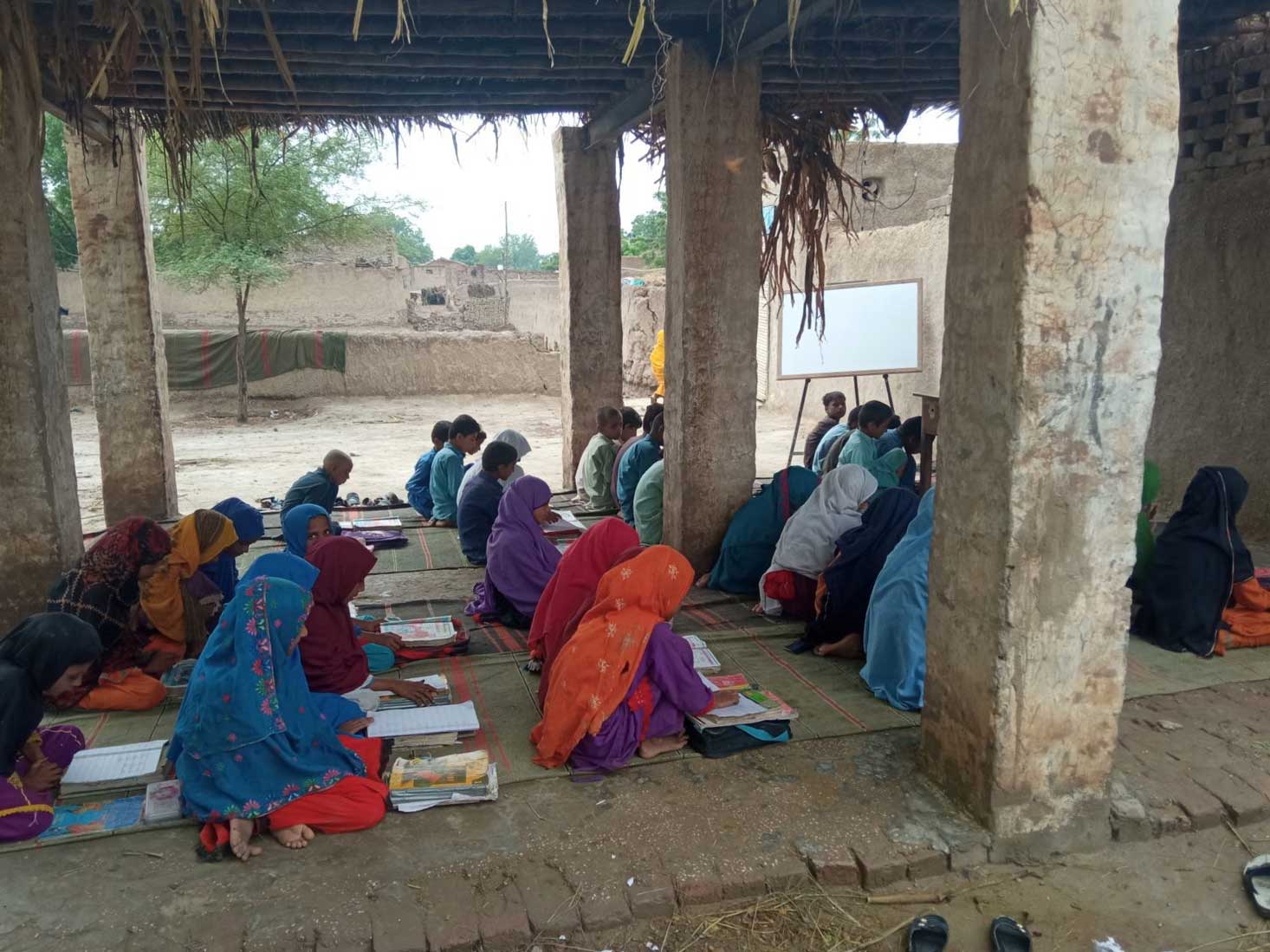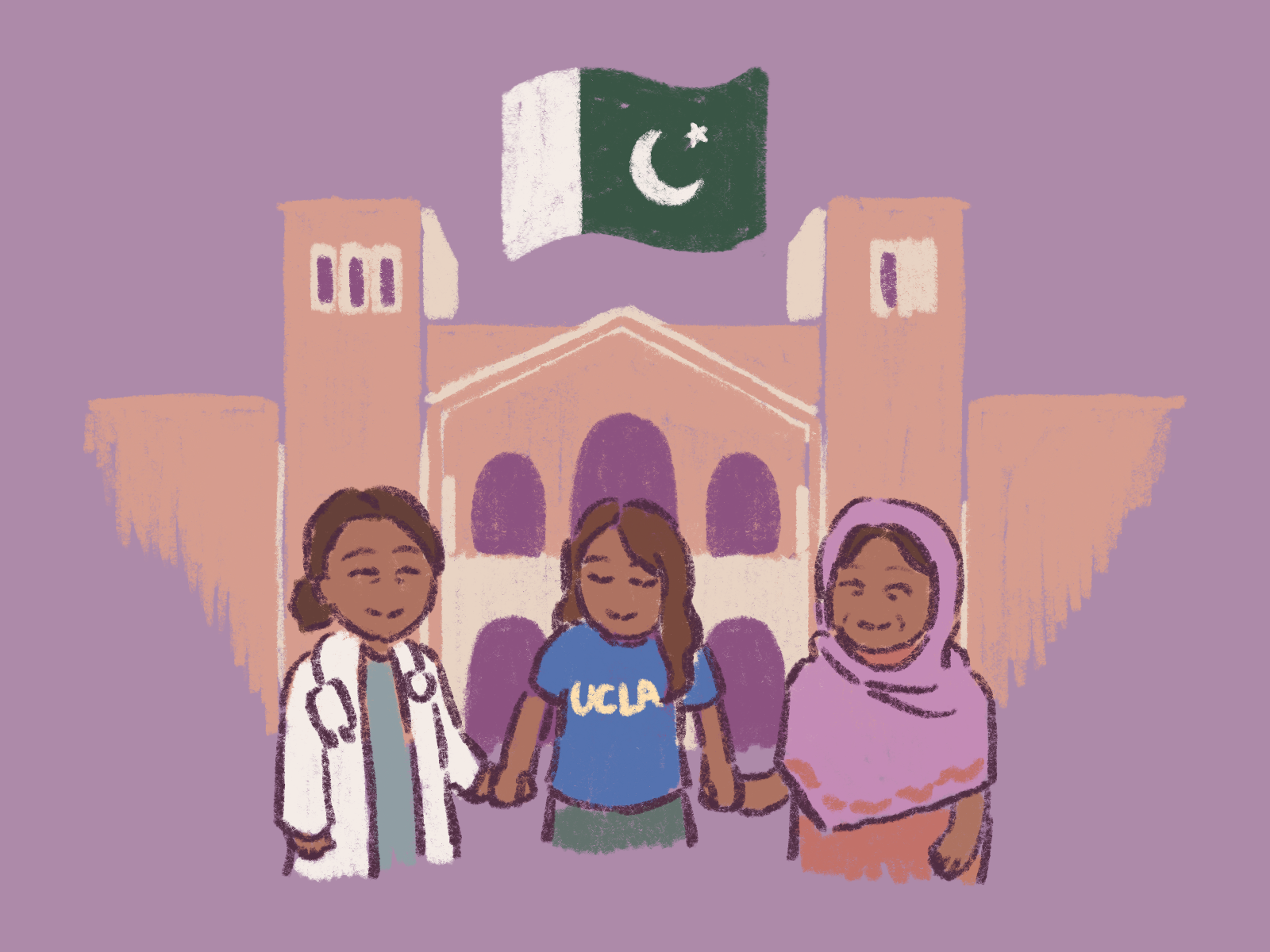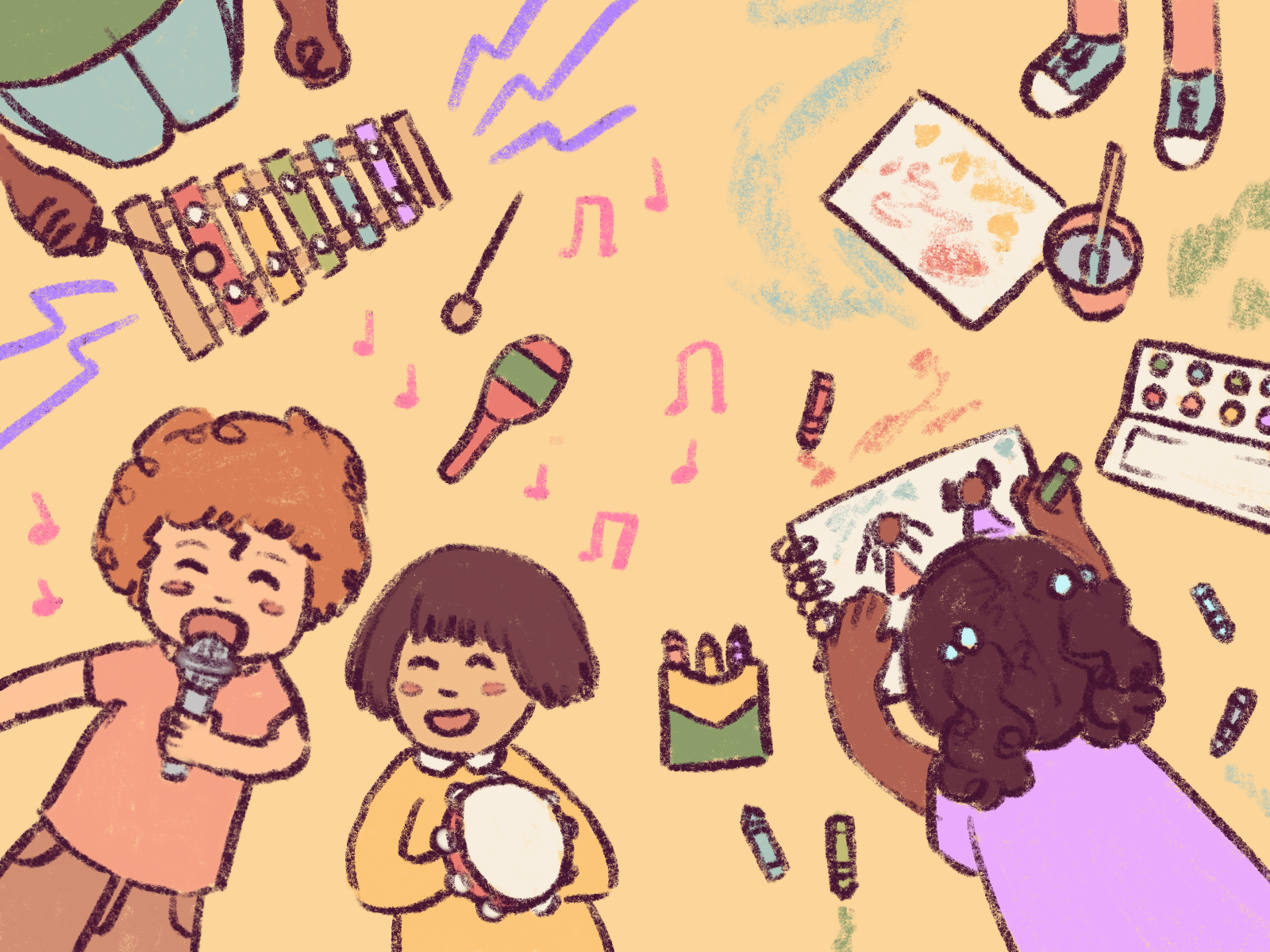Opinion: Gender equality in education is needed for girls in Pakistan to pursue dreams

Young children learning at a school in a rural area of Pakistan are pictured. (Courtesy of Teach a Kid Make Individual Life)
By Manahil Gill
Jan. 21, 2024 9:50 p.m.
I am surrounded by women in my French literature class, physiology class and pre-medical club meetings. I feel at home, like I belong.
I am 19 years old, and when I say I am a student and plan to be for many years to come, I am met with grins and encouragement. It’s what everyone expects me to be, and I am never told I should be anything else.
At UCLA, I can be whatever I desire: a future doctor, a club leader and a writer. When I visit my home in Dallas, Texas, this does not change.
This is the standard for most. After graduating high school, young adults attend college or begin working.
That is, this is the norm in the United States. In Pakistan, my parent’s birth country, this statement no longer rings equally true for everyone.
In Pakistan, gender roles and a lack of accessible education are deeply rooted barriers that create a system that’s extremely difficult to overcome. A young man is expected to pursue a career. A young woman, on the other hand, is unlikely to receive the opportunity to pursue any career.
“For women and young girls, they’re expected to be a housewife, to mother a child, to take care of the husband and be in the kitchen,” said Rida Abbas, a second-year business economics and political science student who lived in Pakistan. “People should have the access to choose what’s right for them, and that’s not really a choice in Pakistan for many women.”
These cultural norms affect girls long before they are married and have children.
“There is a general devaluing of girls and young women and not seeing them as the leaders, the people who have power and the people who are worth investing in their futures compared to boys,” said Virginia Terry, a representative of Girl Rising, a non-profit organization dedicated to overcoming barriers to girls’ education in several countries.
Terry added that this mindset largely stems from power structures. In Pakistan, men are the figures who lead businesses, universities and their own families. Society constantly sees men as those in power – and, as a result, fails to view female education as a priority – this challenge becomes harder to overcome.
Because of these harmful gender dynamics, young girls are pushed away from education and toward future husbands and beckoning household chores.
Female students face physical barriers on top of cultural barriers when trying to attain an education. In rural Pakistan, the closest school can be miles away from students’ homes. Therefore, the long distance makes it exceedingly difficult for female students to walk to school because of their parent’s fear for their safety, ultimately resulting in some students not being able to attend, added Terry.
“Even things like the access to menstrual products can prevent girls from going to school or the lack of access to bathrooms to deal with their menstruation while they’re going to school,” Terry said. “For us in the United States, it sounds like such a small thing, but for adolescent girls who don’t have access to these supplies, there’s shame, there’s stigma.”
These prevalent barriers push young women away from breaking past the status quo, both mentally and physically. Fortunately, these obstacles are slowly weakening.
Shahid Qamar is the founder of Teach a Kid Make Individual Life, a nonprofit organization that aims to increase access to education for children in rural Pakistani communities.
“Due to the latest technology, social media and the internet, parents – especially in rural areas – are more aware about education, and they are more inclined towards sending their girls to school,” Qamar said.
This rise in awareness is attributed to educating adults in Pakistani communities. Girl Rising, for instance, shares stories of young girls and their aspirations to demonstrate how gender biases prevent such aspirations from manifesting.
“It’s more of an exploration of how gender norms hurt people, and not just girls,” Terry said. “They hurt boys, and families and communities, because by not allowing girls to achieve their greatest aspirations, the community is losing. An entire nation is losing out on their talents and their skills.”
Fortunately, there are opportunities that can help Pakistani girls pursue their dreams. For example, Girl Rising’s Future Rising Fellowship provides financial support and access to international conferences for female students. The students who are able to break the status quo can act as leaders in their community who understand the power of education when it is not granted to all.
It is crucial that Pakistani girls continue to have access to resources that help them share their talents and empower them to excel. Their impact expands beyond themselves and can have a significant impact on other students as peer mentors.
“There’s something really important when you have a peer who might be very close to your age, showing you what’s possible and really understanding the particular challenges you’re facing,” Terry said.
As more girls are given opportunities to pursue their passions despite the odds, more girls will be inspired that they too can push past their adversities and succeed.
Changes regarding physical barriers are also actively occurring.
For instance, Qamar said that TAKMIL trains members of the rural community to facilitate the distribution and teaching of pre-made educational materials such as videos and workbooks so that students can attend school even when there are no nearby schools.
Through efforts to both destigmatize girls’ education and increase access to schooling throughout Pakistan, strides can be made to ensure that all children and adolescents have an equal opportunity to pursue their dreams.
At UCLA, all students have the opportunity to take classes from various fields, including courses that do not align with their major. It is a privilege to take a class on ethnomusicology one quarter and take a Spanish linguistics course during the next.
Through clubs that tutor and mentor children from underfunded schools, many UCLA students are actively using their privilege to help lessen educational barriers, break the cycle of inaccessible education and make tangible changes in the lives of these children.
“I have so much to be grateful for that a lot of people, where I come from, don’t have,” Abbas said. “When you have this privilege, it’s important to make the most of it.”
Education is a privilege, one that is often forgotten in areas where it is so widespread.






